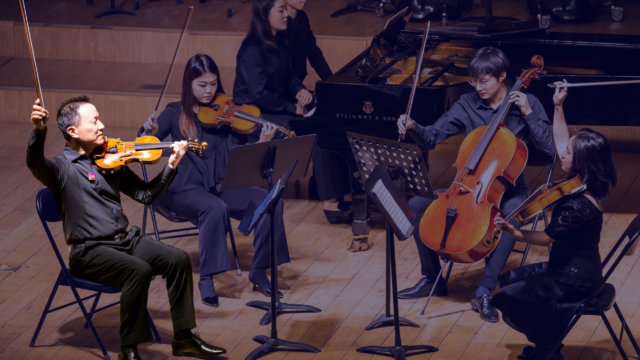Year-End News on Ticketing, Arts Education, Musical Instruments Policy and More!
December 13, 2023
In This Issue
- Ticketing Legislation Advances in U.S. House and Senate
- Congressional Letter Urges U.S. Secretary of Education to Improve Access to Arts Education
- Prepare for FY25 NEA Grant Applications
- Traveling with Ivory: Canada Announces New Permit Rules
- Visa Petitions to Texas Service Center
Ticketing Legislation Advances in U.S. House and Senate
Orchestras are experiencing widespread harm from predatory activity in the secondary ticket sales market. Deceptive URLs and fake ticket sales hurt orchestras’ relationship with audiences and the financial impact is substantial. Last week, legislation moved forward in the U.S. House and Senate to apply new rules for both primary and secondary ticket sales. The League and its partners in the Fix the Tix Coalition are supporting S. 3457, the Fans First Act, a bipartisan Senate bill that would prohibit the use of deceptive websites and speculative ticket sales, and create new requirements for all ticket sellers to disclose all-in prices and fee details.
Congress will consider next steps on this legislation early in 2024. You can speak up now, share examples of your orchestra’s experience, and ask your elected officials to take action. Learn more in the League’s ticketing policy overview and take action through our online advocacy campaign.
Congressional Letter Urges U.S. Secretary of Education to Improve Access to Arts Education
A bipartisan letter led by Reps. Suzanne Bonamici (OR) and Chellie Pingree (ME) has been delivered to the U.S. Department of Education, signed by 38 U.S. Representatives and seeking immediate action to improve access to arts education nationwide. If your member of the U.S. House of Representatives is among those endorsing the letter, please send a message of thanks! The League partnered with national arts education stakeholders to pursue this policy action and we thank the many orchestra advocates who joined others from the full range of arts disciplines throughout the country in rallying support from Congress! Discover additional ways to take action in support of arts education at the community level through the League’s Music Education Advocacy resources.
Prepare for FY25 NEA Grant Applications
Orchestras throughout the country receive vital federal support through direct grants from the National Endowment for the Arts (NEA). The NEA has posted updated guidelines for applicants seeking support via its major grant categories of Grants for Arts Projects (GAP) and Challenge America. GAP has two funding cycles, with the first deadline falling on February 15, 2024. The League has updated its annual tips for orchestras interested in applying for an NEA grant and the agency will be holding discipline-specific webinars as well as staff office hours beginning in January. One important change applicants should note is that organizations will no longer be able to submit a second application for a media arts grant. Find more details and key dates in our tips for orchestras applying for NEA grants.
Traveling with Ivory: Canada Announces New Permit Rules
Older musical instruments, and particularly bows for stringed instruments, may contain small amounts of elephant ivory and have long been under strict rules for international travel and commerce. Canada has announced that, beginning January 8, 2024, Canadian-issued import and export permits will now be required for travel in and out of Canada with ivory, in addition to the required permits already issued by a musician’s home country (League guidance on the U.S. ivory rules can help you brush up on current requirements).
An overview of the new Canadian rules and the specific new regulations detail the process for Canadian musicians. The League is partnering with our colleagues at Orchestras Canada to gather more information about how the permit application process will work for non-Canadian musicians and ensembles, and will keep you posted. In the meantime, please help us spread the word about how musicians can support protected species through the League’s Know Your Bow guide and our overview of protected species rules for musical instruments.
Visa Petitions to Texas Service Center
The League is working at the policy level to improve the artist visa process and also provides the latest news to help orchestras engaging international artists. As of October 1, visa petitions for international guest artists are no longer directly mailed to California or Vermont. Instead, all form I-129 petitions seeking O or P classification approvals must be mailed to the Texas Service Center or be rejected as improperly filed. Learn specifics about the address change in the news section of Artists from Abroad and then peruse the site for basic filing guidance.
Related
-
Learn | Governance
Spotlight: Sarah Generes
-
Learn | Travel with Instruments
Know Your Bow: New Rules and Essential Steps for Pernambuco Sustainability
Become a member
Thank you for your interest in the League of American Orchestras! We are dedicated to advancing the orchestral experience for all.
Join Now
